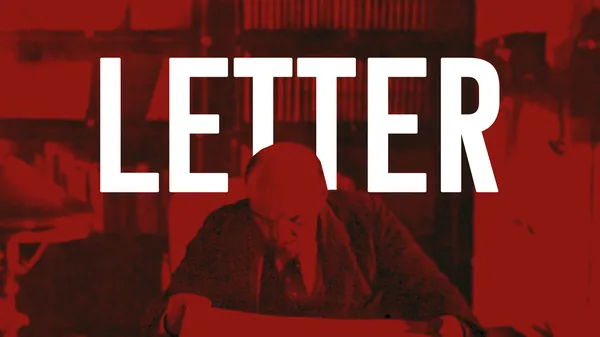In “The Long Night for DSA” Steven De Castro paints a new, cautiously optimistic picture of “DSA in crisis.” While I’m not sure that the refrain “from the river to the sea” is where I would place the pivot for DSA politics around Palestine, I found the framing of the current period as consolidation intuitive and worth considering.
In this, DSA is perhaps like a droplet of water in a spray of mist. There is a surface tension that holds us together, a tendency to consolidate, merge, and hold together even as our component parts move in multitudinous directions. Some find themselves flung out of their own accord, their own politics propelling them past the ever-moving bounds of the organization’s stances. Others find (sometimes to their - or in truth, our - surprise) the behemoth that has long stalked their peripheral vision welcomes them with open arms and even invites their momentum.
Setting aside the politics of DSA’s response - something I think comrade Ben G addressed well in Don’t Say Sorry, DSA! - Steven relays a couple factual errors around the rally in New York on October 8. The decision to endorse and later retract is attributed to DSA, and the apology to the DSA National Political Committee. Both the decision to endorse the rally and to retract and issue an apology afterwards were made entirely within the New York City chapter, or NYC-DSA.
This is an understandable mistake. The relationship of chapters to DSA is not clear to anyone. Chapters have a great deal of autonomy, something jealously guarded at times and cursed at others. Chapters endorse events and candidates of their own accord and make statements on their own - a necessity - but without oversight outside of the chapter. Chapters even may manage their own membership, with the ability even to permanently expel members who remain at-large members of DSA (the usual, and perhaps intended, effect of this is to force these members out of DSA).
This creates a contradiction in what DSA is. Most of the work in DSA is done through chapters, and so it is fair to say that chapters act as DSA. But the lack of democratic oversight by the whole membership means that there is vast inconsistency across chapters in even the most basic standards.
This is most obvious in our electoral work - some members of Boston DSA sought to censure or expel an elected member for acting against the chapter, who quit rather than face democratic discipline; meanwhile, Los Angeles DSA recently re-endorsed a candidate who does not identify publicly as a socialist and has repeatedly voted to increase police budgets, voted to adopt the IHRA definition of antisemitism, and (though this was after the decision to endorse) condemned DSA’s October 7 statement as insensitive to Israelis - reminiscent of the “timing” complaint repeated by NYC-DSA in their apology.
This creates a situation where DSA sometimes does things that–despite it being a democratic organization–most members have no say over or input towards. While our political diversity is our strength, this strange antidemocratic relationship converts it to a weakness, where some chapters may act in ways actively detrimental to others or to DSA as an overarching organization. This can even occur within chapters: different areas of work may work at cross purposes, as in NYC-DSA where one of the flagship elected officials has sponsored an arcane bill to convert NYC’s last public housing into a self-funded trust which tenants say is privatization in sheep’s clothing.
Attempts to address this - generally through the wedge of unified electoral strategy - have been rejected by the DSA membership at convention, though they are growing in popularity. Arguments that chapters need freedom to meet “local conditions” still carry a lot of water. In some quarters progressive municipalism reigns because local races are viewed as more winnable, and a theory of power that sees the state as a neutral tool that socialists can run better is still popular. Though increasingly it is clear to members that this can’t go so far as to allow work to the detriment of others.
The good news is that DSA is not alone in navigating this contradiction; democratic socialist parties have struggled with this for more than a century. Protests of the freedom to navigate local conditions rhyme with the arguments Kautsky criticized in Constituency and Party, particularly considering he was writing in regards to what we call “electeds.”
-Amy W
Liked it? Take a second to support Cosmonaut on Patreon! At Cosmonaut Magazine we strive to create a culture of open debate and discussion. Please write to us at submissions@cosmonautmag.com if you have any criticism or commentary you would like to have published in our letters section.
